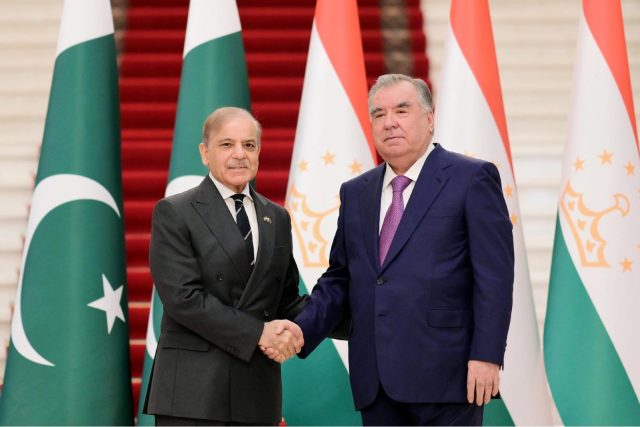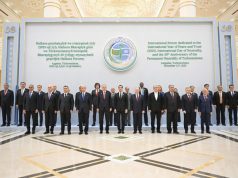DUSHANBE, Friday, May 30, 2025 (WNP): Prime Minister Muhammad Shehbaz Sharif on Friday concluded a productive two-day official visit to Tajikistan, reaffirming Pakistan’s strong commitment to regional connectivity, climate action, and bilateral cooperation with the Central Asian republic. The visit marked a significant step forward in strengthening diplomatic, economic, and environmental ties between Islamabad and Dushanbe.
Prime Minister Shehbaz Sharif, accompanied by Federal Minister for Information and Broadcasting Attaullah Tarar and Special Assistant to the Prime Minister Syed Tariq Fatemi, departed from Dushanbe International Airport where he was seen off by Tajik Deputy Prime Minister Hokim Kholiqzoda.
During his stay, Prime Minister Shehbaz held a wide-ranging and constructive meeting with Tajik President Emomali Rahmon at the Qasr-e-Millat. The two leaders reviewed progress on multiple fronts including trade, energy, defence, education, and regional peace. They agreed to elevate the strategic partnership to new heights through increased investment, cultural exchange, IT collaboration, and people-to-people connectivity.
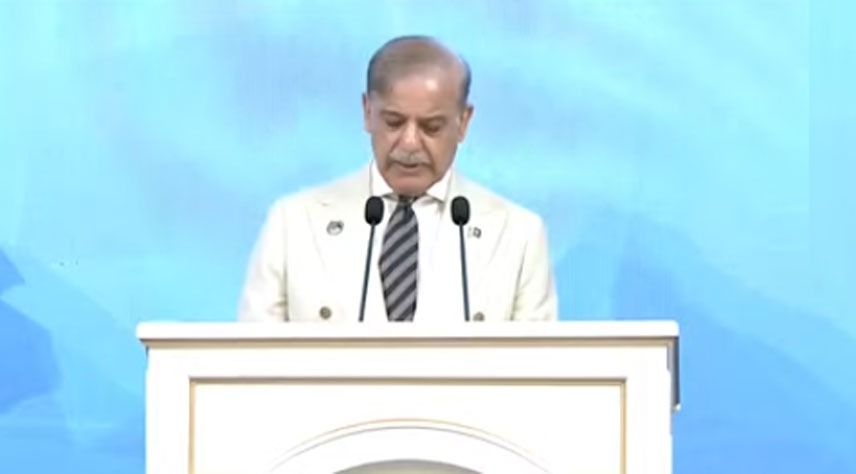
The visit came on the invitation of the Tajik government for the High-Level International Conference on Glaciers’ Preservation (ICGP), jointly hosted by Tajikistan and the United Nations from May 29 to 31. The landmark event brought together over 2,500 delegates from 80 UN member states and 70 international organizations.
In his keynote address at the international conference, Prime Minister Shehbaz Sharif delivered a powerful message on the urgent need for global climate action. He spotlighted Pakistan’s vulnerability to glacial melt, referencing the 2022 floods as a devastating consequence of climate change despite Pakistan contributing less than 0.5% of global carbon emissions.
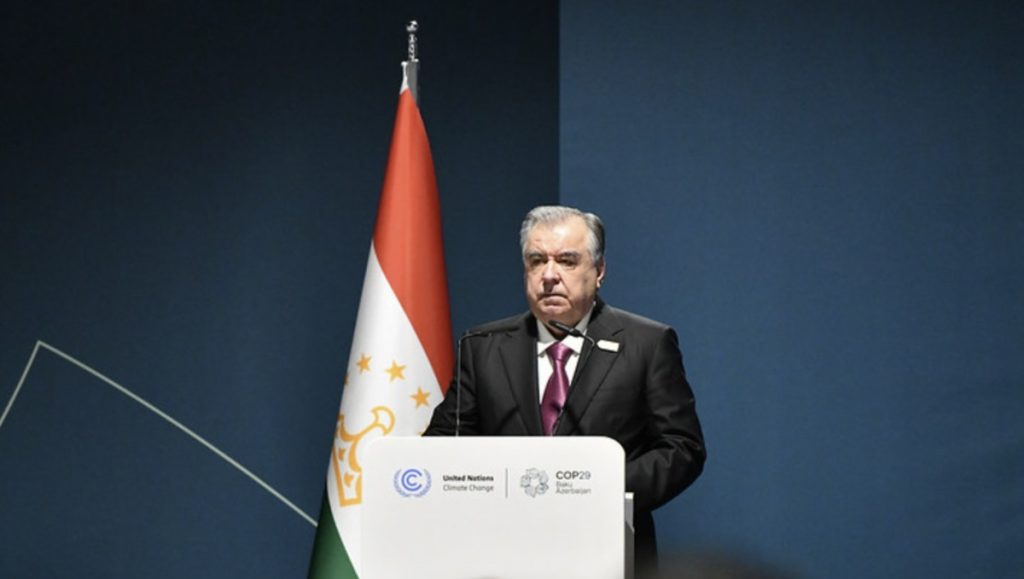
“Pakistan is home to over 13,000 glaciers, and the Indus River System—our civilisation’s lifeline—depends on these fragile ice reserves,” he said. “The weaponization of water is an alarming new low. India’s unilateral move to suspend the Indus Waters Treaty threatens millions of lives. Let me be clear: Pakistan will not allow this red line to be crossed.”
The Prime Minister’s remarks resonated with global leaders and environmental advocates, as he urged developed nations to fulfill their climate finance commitments. He called for greater investment in adaptation, early warning systems, disaster resilience, and scientific research to mitigate future risks.
Shehbaz Sharif also reflected on his own childhood memories of swimming in the Ravi River—now endangered by glacial retreat and pollution—linking the issue of glacier preservation to the shared ecological destiny of humanity.
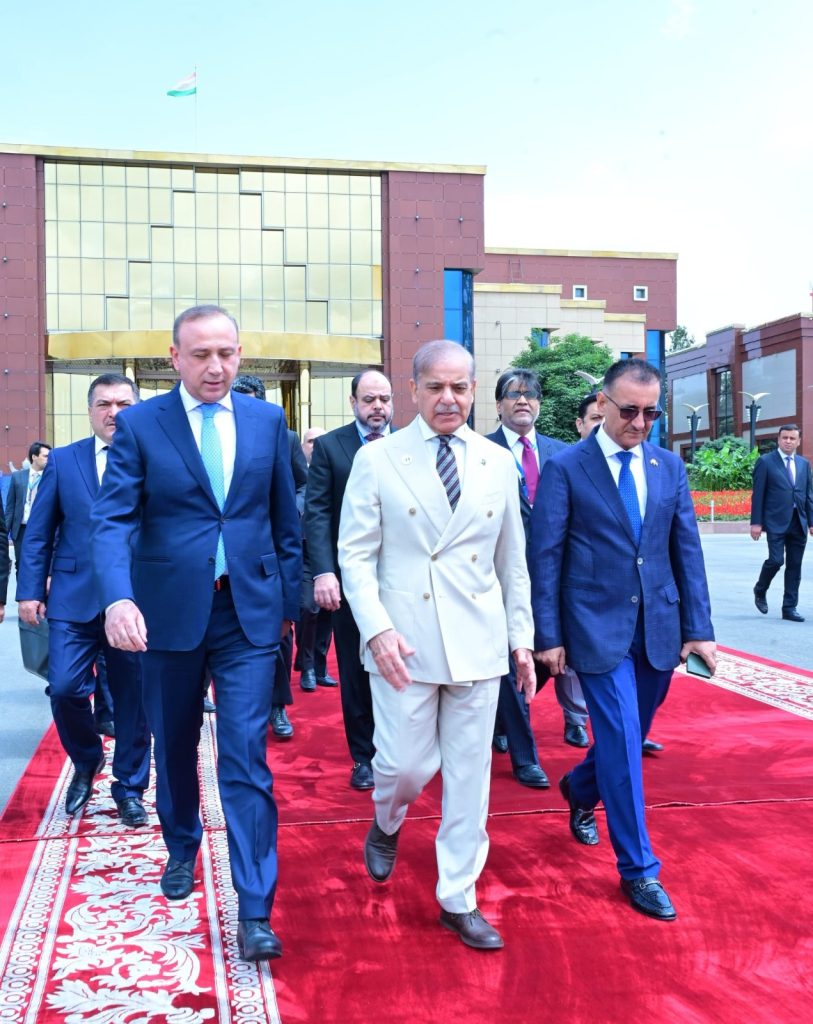
In his address, President Emomali Rahmon emphasized that glacier melt is not just a regional crisis but a global emergency, urging immediate action. “Out of 14,000 glaciers in Tajikistan, 1,300 have already disappeared,” he warned. “This threatens not only our natural heritage but also millions of lives across Central Asia.”
He proposed the development of a Global Strategy for Glaciers’ Preservation, regular satellite-based monitoring, and enhanced international collaboration on water security, food supply, energy generation, and climate resilience.
President Rahmon praised Prime Minister Shehbaz’s leadership in climate diplomacy and highlighted Tajikistan’s own vulnerability as a mountainous country with 93% of its territory susceptible to water-related natural disasters.
In their bilateral dialogue, Prime Minister Shehbaz and President Rahmon reaffirmed their commitment to regional cooperation. They reviewed the progress of CASA-1000, a major regional energy initiative, and vowed to ensure its early operationalization following the Inter-Governmental Council meeting held in Dushanbe on May 15.
The two sides also discussed outcomes from the 7th Session of the Pakistan-Tajikistan Joint Commission held in Islamabad in December 2024, highlighting cooperation in energy, oil and gas, defence, trade, and scientific research. They noted the potential for boosting trade volumes and agreed to activate 12 Joint Working Groups to drive forward sector-specific collaboration.
On defence and security, both countries reiterated their resolve to work closely on counter-terrorism, combating organized crime, and curbing drug and human trafficking.
Prime Minister Shehbaz congratulated President Rahmon on the peaceful resolution of the Tajik-Kyrgyz border dispute, describing it as a model of statesmanship and regional diplomacy.
The leaders exchanged views on geopolitical developments, especially the rising tensions in South Asia. Prime Minister Shehbaz expressed concern over India’s recent provocations, which he termed a violation of international law and a threat to regional stability.
He reiterated Pakistan’s desire for peace, grounded in justice, and emphasized the unresolved Jammu and Kashmir dispute as central to achieving lasting peace in the region. President Rahmon expressed support for Pakistan’s position, praising Prime Minister Shehbaz’s statesmanship during a critical time.
Both sides expressed satisfaction with ongoing cooperation at multilateral fora including the UN, OIC, SCO, and ECO, and agreed to deepen this collaboration.
The visit culminated in a special reception hosted by President Rahmon in honor of Prime Minister Shehbaz. The Prime Minister extended an invitation to President Rahmon for an official visit to Islamabad to continue their strategic dialogue.
Prime Minister Shehbaz lauded Tajikistan’s global leadership in water diplomacy and climate advocacy, and congratulated President Rahmon on the successful hosting of the International Conference on Glaciers’ Preservation.
As he departed Dushanbe, Prime Minister Shehbaz Sharif left behind a message of unity, resilience, and shared responsibility in facing one of the greatest global challenges of our time. His visit underscored Pakistan’s unwavering commitment to regional harmony, environmental sustainability, and international cooperation.

